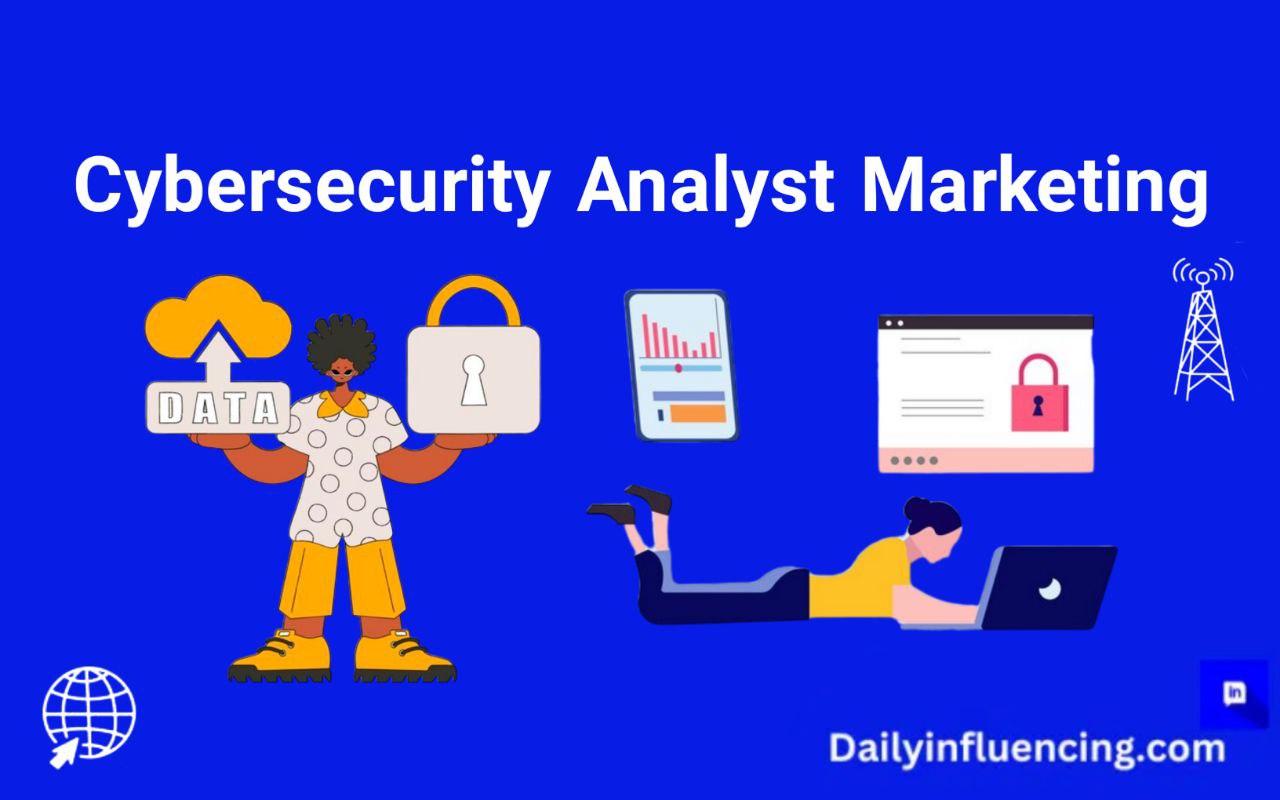
Learn how to build trust and safeguard customer data with expert cybersecurity analyst marketing advice and insights.
Cybersecurity Analyst Marketing Essentials
The Importance of Effective Marketing
Cybersecurity threats are becoming increasingly sophisticated, making it essential for businesses to protect their sensitive data and systems. Consequently, cybersecurity analysts are in high demand. To capitalize on this demand, effective marketing strategies are crucial for these professionals to stand out in a competitive market.
What is Cybersecurity Analyst Marketing?
Cybersecurity analyst marketing involves promoting expertise, services, and thought leadership to potential clients, partners, and industry peers. By developing a strong marketing strategy, cybersecurity analysts can establish themselves as trusted experts, attract new clients, and stay ahead of competitors.
In this article, we’ll delve into expert strategies for cybersecurity analyst marketing. We’ll explore essential marketing principles, data protection insights, and effective marketing tactics to help cybersecurity analysts succeed in their careers.
Data Protection Expert Insights
Emerging Threats and Trends
It’s essential for cybersecurity analysts to stay ahead of the curve. Consequently, some of the emerging threats and trends include:
- Increased use of artificial intelligence and machine learning by hackers: Cybercriminals are leveraging AI and ML to create more sophisticated and targeted attacks. Moreover, this trend is expected to continue in the coming years.
- Growing importance of cloud security: As more businesses move to the cloud, cybersecurity analysts must prioritize cloud security to protect sensitive data. In fact, cloud security is becoming a critical component of overall cybersecurity strategies.
- Rising threat of ransomware attacks: Ransomware attacks are becoming increasingly common, and cybersecurity analysts must develop strategies to prevent and respond to these attacks. Furthermore, the financial impact of ransomware attacks can be devastating.
- Importance of IoT security: The growing number of IoT devices creates new vulnerabilities, and cybersecurity analysts must prioritize IoT security to protect against attacks. Notably, IoT security is a rapidly evolving field that requires ongoing attention.
Best Practices for Data Protection
To protect sensitive data and systems, cybersecurity analysts should follow best practices, including:
- Implementing robust access controls and authentication protocols: This includes multi-factor authentication, secure password management, and role-based access control. Additionally, access controls should be regularly reviewed and updated.
- Conducting regular security audits and risk assessments: This helps identify vulnerabilities and prioritize remediation efforts. Similarly, regular security audits can help identify areas for improvement.
- Developing incident response plans: Cybersecurity analysts should have a plan in place to respond quickly and effectively in the event of a security incident. Meanwhile, incident response plans should be regularly tested and updated.
- Providing ongoing training and awareness programs for employees: Educating employees on cybersecurity best practices and emerging threats is essential for preventing attacks. Likewise, ongoing training programs can help reinforce cybersecurity awareness.
Expert Insights for Cybersecurity Analyst Marketing
“Data protection is not just about technology; it’s about people and processes. Cybersecurity analysts must understand the human factor and develop strategies to address it.”
“Cybersecurity is a constantly evolving field, and analysts must stay up-to-date on the latest threats and trends. Ongoing education and training are essential for success.”
Data Protection Strategies for Cybersecurity Analyst Marketing
Cybersecurity analysts can implement various strategies to protect sensitive data and systems, including:
- Encryption: Encrypting data both in transit and at rest helps protect it from unauthorized access. Furthermore, encryption is a critical component of data protection strategies.
- Network segmentation: Segmenting networks helps limit the spread of malware and unauthorized access. Additionally, network segmentation can help reduce the attack surface.
- Secure data storage: Implementing secure data storage solutions, such as secure cloud storage, helps protect sensitive data. Meanwhile, secure data storage solutions can provide an additional layer of protection.
- Regular software updates: Keeping software up-to-date helps patch vulnerabilities and prevent attacks. Similarly, regular software updates can help reduce the risk of security incidents.
Benefits of Effective Data Protection
Effective data protection provides numerous benefits, including:
- Protection of sensitive data: Effective data protection helps prevent unauthorized access to sensitive data. Consequently, this helps protect against data breaches and cyber attacks.
- Reduced risk of security incidents: Implementing robust data protection measures helps reduce the risk of security incidents. Moreover, this can help reduce the financial impact of security incidents.
- Compliance with regulations: Effective data protection helps businesses comply with relevant regulations and standards. Additionally, compliance with regulations can help avoid costly fines and penalties.
- Improved reputation: Businesses that prioritize data protection are viewed as trustworthy and responsible. Furthermore, this can help improve customer loyalty and retention.
Effective Marketing Strategies for Cybersecurity Analysts
Leveraging Social Media to Establish Thought Leadership
Cybersecurity analysts can leverage social media platforms like LinkedIn, Twitter, and Facebook to establish themselves as thought leaders in the industry. By sharing their expertise and providing value to their audience, analysts can build relationships with potential clients and partners, stay up-to-date on the latest industry news and trends, and increase their online visibility. Moreover, social media platforms provide an opportunity for analysts to showcase their personality and build a personal brand.
The Power of Networking and Partnerships
Networking and partnerships are essential for cybersecurity analysts to build their professional network, identify new business opportunities, and stay ahead of the competition. By attending industry events, joining professional organizations, and partnering with other cybersecurity professionals, analysts can build relationships with potential clients and partners, stay up-to-date on the latest industry news and trends, and increase their credibility. Furthermore, partnerships can provide access to new technologies, methodologies, and expertise.
Building a Professional Online Presence
Having a professional online presence is crucial for cybersecurity analysts to promote their expertise, build their personal brand, and attract new business opportunities. By creating a professional website, blog, or podcast, analysts can establish themselves as thought leaders in the industry, share their expertise and provide value to their audience, and increase their online visibility.
CONCLUSION
In conclusion, effective marketing strategies are crucial for cybersecurity analysts to establish themselves as trusted experts, attract new clients, and stay ahead of the competition. By leveraging social media, networking and partnerships, and building a professional online presence, analysts can promote their expertise, build their personal brand, and attract new business opportunities.
Moreover, staying up-to-date on the latest industry trends and best practices is essential for success in the field. Ultimately, by implementing these strategies, cybersecurity analysts can establish themselves as leaders in the industry and achieve their career goals.




